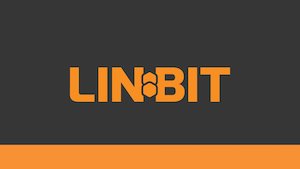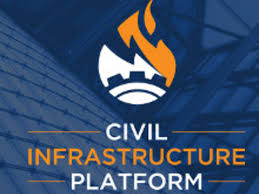 The Free Software Foundation (FSF) started promoting the idea of sharing code way back in 1985, and since then it's defended the rights of computer users and developers. The FSF says that the terms "open" and "closed" are not effective words when classifying software, and instead considers programs either freedom-respecting ("free" or "libre") or freedom-trampling ("non-free" or "proprietary"). Whatever terminology you use, the imperative is that computers must belong, part and parcel, to the users, and not to the corporations that owns the software the computers run. This is why the GNU Project, and the Linux kernel, Freedesktop.org, and so many other open source projects are so important.
The Free Software Foundation (FSF) started promoting the idea of sharing code way back in 1985, and since then it's defended the rights of computer users and developers. The FSF says that the terms "open" and "closed" are not effective words when classifying software, and instead considers programs either freedom-respecting ("free" or "libre") or freedom-trampling ("non-free" or "proprietary"). Whatever terminology you use, the imperative is that computers must belong, part and parcel, to the users, and not to the corporations that owns the software the computers run. This is why the GNU Project, and the Linux kernel, Freedesktop.org, and so many other open source projects are so important.
Linux Kernel
See the following -
'Open Source' Is Not 'Free Software'
 In the open source universe, using terms such as FLOSS (Free/Libre and Open Source Software) is common and represents a casual conflation of the terms open source and free software, which are often used interchangeably. I would be remiss if I didn't also admit that I have been guilty of same. I won't be doing that anymore—or at least I'll try not to—for a simple reason: Using the terms interchangeably is dangerous to the goals of free software and open media advocates (read "anti-DRM"). To continue this practice is to undermine beliefs that are fundamental to free software and associated movement...
In the open source universe, using terms such as FLOSS (Free/Libre and Open Source Software) is common and represents a casual conflation of the terms open source and free software, which are often used interchangeably. I would be remiss if I didn't also admit that I have been guilty of same. I won't be doing that anymore—or at least I'll try not to—for a simple reason: Using the terms interchangeably is dangerous to the goals of free software and open media advocates (read "anti-DRM"). To continue this practice is to undermine beliefs that are fundamental to free software and associated movement...
- Login to post comments
4 Big Ways Companies Benefit from Having Open Source Program Offices
 In the first article in my series on open source program offices, I took a deep dive into what an open source program office is and why your company might need one. Next I looked at how Google created a new kind of open source program office. In this article, I'll explain a few benefits of having an open source program office. At first glance, one big reason why a company not in the business of software development might more enthusiastically embrace an open source program office is because they have less to lose. After all, they're not gambling with software products that are directly tied to revenue...
In the first article in my series on open source program offices, I took a deep dive into what an open source program office is and why your company might need one. Next I looked at how Google created a new kind of open source program office. In this article, I'll explain a few benefits of having an open source program office. At first glance, one big reason why a company not in the business of software development might more enthusiastically embrace an open source program office is because they have less to lose. After all, they're not gambling with software products that are directly tied to revenue...
- Login to post comments
Alex Polvi Explains CoreOS
A couple of months ago we interviewed Solomon Hykes about Docker, which is a way to build and manage Linux Containers with a lot of nice features. The next question was: if the full-stack can be provided by a Docker image and everything can be Dockerized, what is the minimum OS we need to run Docker images? Read More »
- Login to post comments
Google Glass Moves With Speed Thanks to Open Source
I recently got a Google Glass device through the Explorer Program. Once I got it in my hands, I linked it to my associated Gmail account and G+ account. Then, I got started. One of the first things I noticed was that I was presented with many open source software tools to work with. This was exciting. And, I soon learned that it was thanks to these open source resources that Glass development can be done quickly and successfully. Read More »
- Login to post comments
Hard to Communicate with Other Teams? Check Out These Tips
 When teams in the same organization—or even across organizational boundaries—start to collaborate, they will most likely realize that not all of their goals align. The IT team, for instance, might not have the same criteria for success as the sales team. Different teams have different benchmarks, even if the teams are part of a larger organization (as in the case of relationships between a developer team and an operations team). But the teams all strive towards the same goal, which is to make the organization successful. And they rely on each other to accomplish that goal. For this reason, learning more about why a team is working on a specific project, not just focusing on how they're involved and what the project is about, can help you foster better relationships across your organization...
When teams in the same organization—or even across organizational boundaries—start to collaborate, they will most likely realize that not all of their goals align. The IT team, for instance, might not have the same criteria for success as the sales team. Different teams have different benchmarks, even if the teams are part of a larger organization (as in the case of relationships between a developer team and an operations team). But the teams all strive towards the same goal, which is to make the organization successful. And they rely on each other to accomplish that goal. For this reason, learning more about why a team is working on a specific project, not just focusing on how they're involved and what the project is about, can help you foster better relationships across your organization...
- Login to post comments
How Open Source Is Changing the Pace of Software Development
...as new computing architectures and approaches rapidly evolve for cloud computing, for big data, for the Internet of Things (IoT), it's also becoming evident that the open source development model is extremely powerful because of the manner in which it allows innovations from multiple sources to be recombined and remixed in powerful ways. Consider the following examples...
- Login to post comments
Interview With Free Software Foundation Executive Director Zoë Kooyman
- Login to post comments
LINBIT Enhances Red Hat Enterprise Linux with Full DRBD Support
 Open source high availability powerhouse LINBIT announced full DRBD® support on the Red Hat Enterprise Linux (RHEL) operating system platform this morning. This enhances the world's most widely deployed Linux server platform with the industry's premier storage replication facility - all in a 100% open source software stack. LINBIT, co-based in Vienna, Austria and Beaverton, OR, has been a cornerstone of the Linux high availability community for a decade. DRBD, LINBIT's block-level, synchronous replication solution has defined storage replication on Linux for ten years. It is part of the Linux kernel and is widely deployed across all industries in high availability solutions for databases, storage servers, virtualization and much more.
Open source high availability powerhouse LINBIT announced full DRBD® support on the Red Hat Enterprise Linux (RHEL) operating system platform this morning. This enhances the world's most widely deployed Linux server platform with the industry's premier storage replication facility - all in a 100% open source software stack. LINBIT, co-based in Vienna, Austria and Beaverton, OR, has been a cornerstone of the Linux high availability community for a decade. DRBD, LINBIT's block-level, synchronous replication solution has defined storage replication on Linux for ten years. It is part of the Linux kernel and is widely deployed across all industries in high availability solutions for databases, storage servers, virtualization and much more.
Managing The Open Source Product Roadmap
 Customers, as well as the sales and marketing teams who talk to them, love a roadmap. It gives them a sense of what is realistic and what is not. The roadmap is also at the heart of a product. Maintaining an up-to-date product roadmap keeps the product team focused on the customer and aligned around delivering what they need. The roadmap communicates both the strategic direction for a product and the company's perspective on problem solving.
Customers, as well as the sales and marketing teams who talk to them, love a roadmap. It gives them a sense of what is realistic and what is not. The roadmap is also at the heart of a product. Maintaining an up-to-date product roadmap keeps the product team focused on the customer and aligned around delivering what they need. The roadmap communicates both the strategic direction for a product and the company's perspective on problem solving.
- Login to post comments
Open Source Diversity Efforts Gain Momentum in 2016
 If software is pervasive, shouldn't the people building it be from everywhere and represent different voices? The broadly accepted answer is yes, that we need a diverse set of developers and technologists to build the new digital world. Further, when you look at communities that thrive, they are those that evolve and grow and bring in new voices and perspectives. Because much of the software innovation happening today involves open source software, the open source community can be an entry point for new people in technology roles. This means that the open source community must evolve to stay relevant...
If software is pervasive, shouldn't the people building it be from everywhere and represent different voices? The broadly accepted answer is yes, that we need a diverse set of developers and technologists to build the new digital world. Further, when you look at communities that thrive, they are those that evolve and grow and bring in new voices and perspectives. Because much of the software innovation happening today involves open source software, the open source community can be an entry point for new people in technology roles. This means that the open source community must evolve to stay relevant...
- Login to post comments
Open Source for Products in Four Rules (and 10 Slides)
 There are four rules to understand when building products out of open source software. A product team (engineering, product management, marketing) needs to understand these rules to participate best in an open source project community and deliver products and services to their customers at the same time. These four rules are the start of all other discussions about the open source product space...
There are four rules to understand when building products out of open source software. A product team (engineering, product management, marketing) needs to understand these rules to participate best in an open source project community and deliver products and services to their customers at the same time. These four rules are the start of all other discussions about the open source product space...
- Login to post comments
Open Source Project Management Can Be Risky Business
 Our digital lives are powered by programming philosophers who choose to develop their code out in the open. All programs begin with lines of instruction. When ready for execution these lines of instruction are converted to a binary format that the computer can execute. Open source programs are programs where the human readable code is accessible to anyone. This philosophy of openness and freedom has allowed these projects to impact the lives of everyone. The Linux kernel is the core of all Android devices, and nearly a third of all Internet traffic rides on just one openly developed project, Netflix...
Our digital lives are powered by programming philosophers who choose to develop their code out in the open. All programs begin with lines of instruction. When ready for execution these lines of instruction are converted to a binary format that the computer can execute. Open source programs are programs where the human readable code is accessible to anyone. This philosophy of openness and freedom has allowed these projects to impact the lives of everyone. The Linux kernel is the core of all Android devices, and nearly a third of all Internet traffic rides on just one openly developed project, Netflix...
- Login to post comments
Preventing the Next Heartbleed and Making FOSS More Secure
 David Wheeler is a long-time leader in advising and working with the U.S. government on issues related to open source software. His personal webpage is a frequently cited source on open standards, open source software, and computer security. David is leading a new project, the CII Best Practices Badging project, which is part of the Linux Foundation's Core Infrastructure Initiative (CII) for strengthening the security of open source software. In this interview he talks about what it means for both government and other users...
David Wheeler is a long-time leader in advising and working with the U.S. government on issues related to open source software. His personal webpage is a frequently cited source on open standards, open source software, and computer security. David is leading a new project, the CII Best Practices Badging project, which is part of the Linux Foundation's Core Infrastructure Initiative (CII) for strengthening the security of open source software. In this interview he talks about what it means for both government and other users...
- Login to post comments
The Linux Foundation Launches First Linux-Based Civil Infrastructure Project
 The Linux Foundation...today announced the Civil Infrastructure Platform (CIP), an open source framework that will provide the software foundation needed to deliver essential services for civil infrastructure and economic development on a global scale. Early supporters of CIP include Codethink, Hitachi, Plat'Home, Siemens and Toshiba. Civil infrastructure systems deliver critical services that are considered the lifelines of society: electric power, oil and gas, water, health care, communications, transportation and more.
The Linux Foundation...today announced the Civil Infrastructure Platform (CIP), an open source framework that will provide the software foundation needed to deliver essential services for civil infrastructure and economic development on a global scale. Early supporters of CIP include Codethink, Hitachi, Plat'Home, Siemens and Toshiba. Civil infrastructure systems deliver critical services that are considered the lifelines of society: electric power, oil and gas, water, health care, communications, transportation and more.
- Login to post comments
The Linux Foundation’s Core Infrastructure Initiative Announces New Backers, First Projects To Receive Support And Advisory Board Members
The Core Infrastructure Initiative (CII), a project hosted by The Linux Foundation that enables technology companies, industry stakeholders and esteemed developers to collaboratively identify and fund open source projects that are in need of assistance, today announced five new backers, the first projects to receive funding from the Initiative and the Advisory Board members who will help identify critical infrastructure projects most in need of support...
- Login to post comments